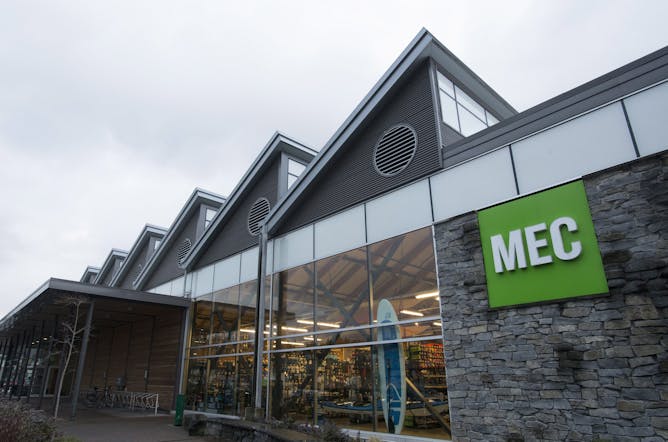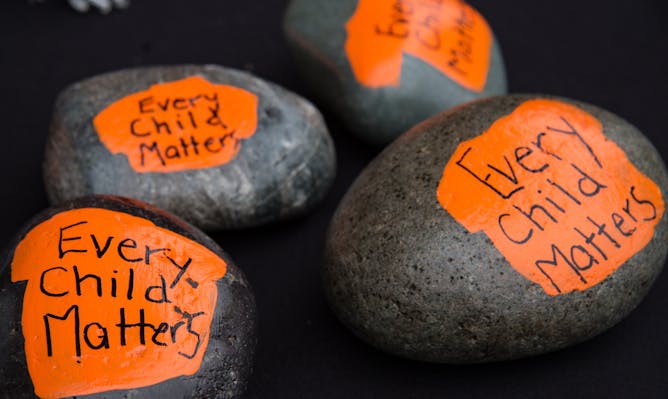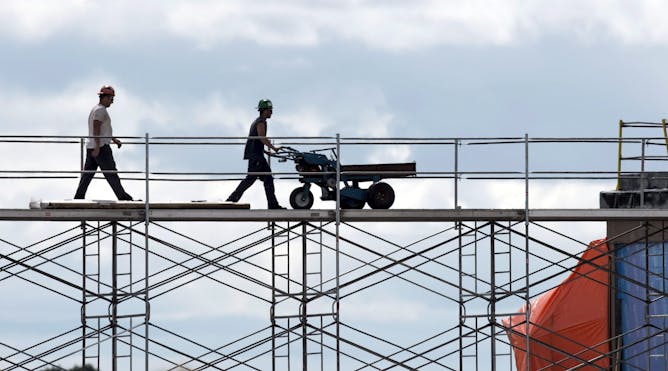|
Many Canadians have enjoyed a shopping spree at Mountain Equipment Co-op as they’ve prepared for a camping trip or stocked up on warm activewear as winter approaches. MEC has been a national tradition since it was established in 1971 as a Canadian consumers’ co-operative selling outdoor recreation gear and clothing exclusively to its members.
That’s why the news that MEC has been sold to a U.S. investment company was such a shock. But as Marc-Andre Pigeon of the University of Saskatchewan writes in today’s The Conversation Canada, we shouldn’t have been surprised. Research has shown that big co-operatives often fail when they drift away from co-operative principles and values, especially democratic representation — mistakes made by the MEC board of directors.
Also in today’s edition:
Regards,
|

The outside of a Mountain Equipment Co-op is seen in North Vancouver.
THE CANADIAN PRESS/Jonathan Hayward
Marc-Andre Pigeon, University of Saskatchewan
MEC built a leadership team that lacked any obvious understanding of co-operatives and fostered a culture that started to see member involvement as a problem rather than a strength.
|

Rocks painted with the message “every child matters,” commemorate Orange Shirt Day, Sept. 30, about creating meaningful discussion about the effects of Residential Schools and their legacy.
(Province of British Columbia/Flickr)
Teresa Anne Fowler, Concordia University of Edmonton
A study in one Alberta school board found racism contributes to poor attendance of on-reserve Indigenous students in public schools, despite educators not recognizing this as a barrier.
|

Patients who were overweight and obese had lower mortality rates following cardiac surgery than those with BMIs in the normal or underweight range.
(Shutterstock)
Ana Johnson, Queen's University, Ontario; Joel Parlow, Queen's University, Ontario
For patients recovering from heart surgery, being overweight or moderately obese appears to be an advantage over being underweight or even having a normal BMI.
|

Des ouvriers traversent un haut échafaudage sur un chantier de construction. La crise actuelle fait ressortir l’importance des aspects sociaux et environnementaux liés à tout grand projet d’infrastructures.
La Presse Canadienne/Paul Chiasson
Nathalie Drouin, Université du Québec à Montréal (UQAM); Marie-Andrée Caron, Université du Québec à Montréal (UQAM)
Les infrastructures ne peuvent plus être pensées uniquement en fonction de leurs bénéfices financiers. Les aspects sociaux et environnementaux doivent aussi faire partie de l’équation.
|
Culture + Society
|
-
Polly Fong, The University of Queensland; Alex Haslam, The University of Queensland; Catherine Haslam, The University of Queensland; Tegan Cruwys, Australian National University
Third places – where people meet outside of work and home – foster a sense of belonging, particularly for retirees. COVID-19 restrictions shut them down, so can online communities fill the void?
|
|
Environment + Energy
|
-
Tanya Wyatt, Northumbria University, Newcastle
Reptiles are consistently overlooked by regulators of the trade in wildlife, but many face extinction in the wild.
|
|
Politics
|
-
John A. Tures, LaGrange College
Many Supreme Court nomination battles depended on whether the president's party also had control of the US Senate.
|
|